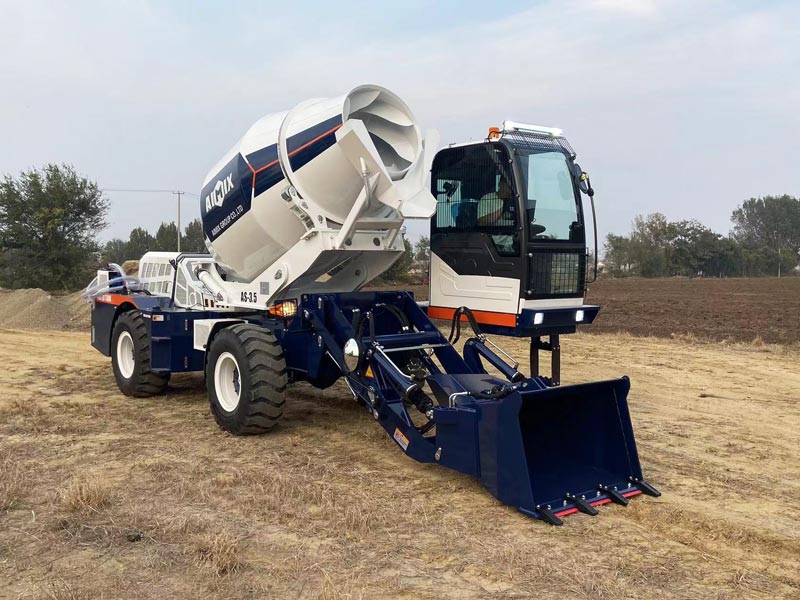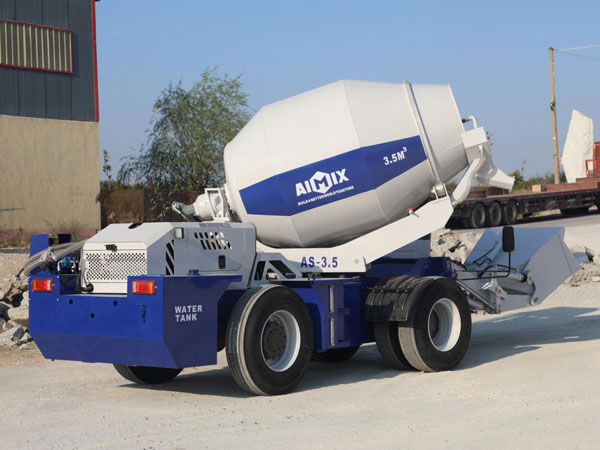How Diesel Concrete Mixers Support Building and Infrastructure Projects
Building and infrastructure projects require strong, durable, and efficient concrete mixing solutions. One of the most reliable tools for these tasks is the diesel concrete mixer. These machines are designed to perform well in demanding environments. They are widely used in construction of roads, bridges, buildings, and other large-scale projects. In this blog, we explore how diesel concrete mixers support building and infrastructure work. We also compare them with other mixers like the self loading mixer concrete. This guide will help you understand their value and application.

Why Diesel Concrete Mixers Are Essential for Large Projects
Diesel concrete mixers are essential for large construction projects. They provide a reliable source of power, even in remote areas. Unlike electric mixers, diesel mixers do not depend on electricity. This makes them ideal for construction sites without grid access. These mixers are built to handle heavy-duty work. They can mix large volumes of concrete quickly and consistently. Their durability ensures they can work long hours without frequent breakdowns. For builders, this means fewer delays and more productivity. Diesel mixers are a backbone of many infrastructure projects.
Power and Performance in Demanding Conditions
Diesel engines provide high torque and consistent power. This allows diesel concrete mixer to mix dense and heavy concrete mixes with ease. They can handle coarse aggregates and large quantities without compromising quality. These mixers perform well in extreme weather and tough terrains. Whether it's a mountain road or a desert construction site, diesel mixers keep working. Their ability to run non-stop for long hours supports continuous construction. This makes them perfect for time-sensitive infrastructure projects.
Mobility and Flexibility on Construction Sites
Many diesel concrete mixers come with wheels or trailer mounts. This allows them to be easily moved around large job sites. They can also be transported between different locations as needed. Mobility is crucial for infrastructure projects spread across large areas. Workers can bring the mixer directly to the pouring site. This reduces material handling and saves time. It also improves efficiency on busy construction grounds. Flexibility is one of the key advantages of diesel mixers.

Self Loading Mixer Concrete: A Complementary Option
A self loading mixer concrete is another useful machine for construction projects. It combines loading, mixing, and discharging in one unit. This reduces the need for extra labor and equipment. While self-loading mixers are usually smaller, they are ideal for specific tasks. They work well for small batches or remote repairs. In some cases, they complement diesel mixers by handling detailed or limited jobs. Both types of mixers support different aspects of building and infrastructure work.
Applications in Road and Bridge Construction
Roads and bridges require high-quality, durable concrete. Diesel concrete mixers are commonly used to produce concrete for these structures. They can mix large batches consistently, ensuring uniform strength. These mixers are also used for repairing roads and bridges. Their portability allows them to reach damaged areas quickly. Workers can produce fresh concrete on-site for fast repairs. This helps maintain safe and durable transportation infrastructure.
Building Construction and High-Rise Projects
In building construction, diesel concrete mixers are used for foundations, walls, and floors. They can handle the high volume of concrete needed for multi-story projects. Their consistent mixing ensures structural integrity. These mixers are also used for pumping concrete to higher floors. When combined with concrete pumps, they improve efficiency on tall buildings. Diesel power ensures the mixer keeps up with the demand. They are a key part of modern building projects.
Infrastructure for Utilities and Public Works
Utilities like water systems, sewage, and electrical projects need concrete too. Diesel concrete mixers are used to create durable structures for these systems. They produce concrete for pipes, manholes, and treatment facilities. Public works projects also rely on these mixers. They are used for constructing sidewalks, community centers, and government buildings. Their reliability ensures public infrastructure is built to last. Diesel mixers support many aspects of public development.
Advantages of Using Diesel Mixers in Construction
Diesel concrete mixers offer several benefits for builders. They are powerful and can run for long hours without overheating. Their fuel efficiency makes them cost-effective for large projects. These mixers are easy to maintain and repair. Spare parts are widely available, reducing downtime. Their ability to work off-grid increases their usefulness in remote areas. Overall, diesel mixers improve productivity and reduce delays.
Comparing Diesel and Electric Mixers
Electric mixers are limited by their need for a power source. They are suitable for urban areas with reliable electricity. Diesel mixers, however, are more flexible and can work anywhere. Diesel engines provide more torque, making them better for heavy mixes. Electric mixers are quieter and better for indoor or noise-sensitive areas. The choice depends on the project location and requirements. Both have their place, but diesel excels in remote and heavy-duty work.
Conclusion: A Vital Tool for Construction Success
Diesel concrete mixers play a vital role in building and infrastructure projects. They provide reliable power, mobility, and consistent performance. These mixers are essential for roads, bridges, buildings, and public works. When combined with other mixers like the self loading mixer concrete, they offer a complete solution. For builders, investing in a diesel mixer means better efficiency and stronger results. They are a practical and powerful choice for modern construction needs.